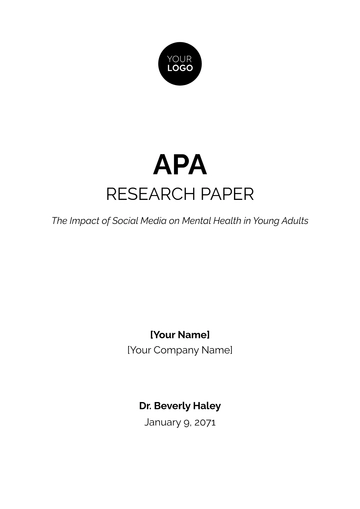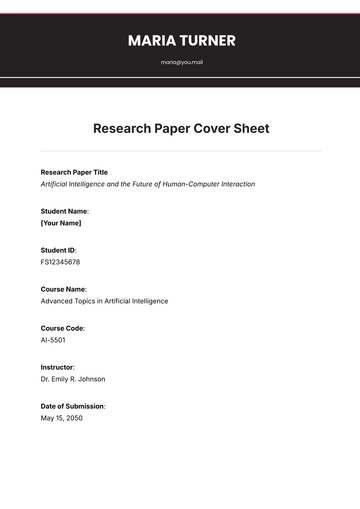Mental Health White Paper
Comprehensive Analysis of Mental Health: Challenges and Innovations
[Your Company Name]
Prepared by [Your Name]
Department of [Your Department]
Date: [Date]
I. Executive Summary
This white paper provides an in-depth analysis of the current state of mental health, highlighting the prevalence of mental health disorders, reviewing existing treatments, assessing societal attitudes, and making policy recommendations. It aims to inform stakeholders and guide strategic decisions in the enhancement of mental health services.

II. Introduction
This document aims to outline the pressing challenges faced by individuals with mental health issues and to explore effective strategies for improving overall mental health outcomes. The white paper examines both the societal impacts of mental health disorders and the personal toll they take on individuals.
III. Prevalence of Mental Health Disorders
Mental health disorders affect a significant portion of the global population. This section provides detailed statistics and infographics to exhibit the widespread nature of this issue.
Global and regional prevalence rates
Demographic breakdown (age, gender, socioeconomic status)
Comparison with physical health disorders
Source of data: National Health and Nutrition Examination Survey (NHANES)
IV. Current Treatments and Interventions
This section evaluates the various treatments and interventions currently available, assessing their effectiveness and accessibility.
Pharmacological treatments
Psychotherapy and counseling
Community support and resources
Alternative and complementary therapies
V. Societal Attitudes and Stigma
Stigma remains a significant barrier to effective mental health care. This part of the document discusses societal perceptions and the impact of stigma on seeking treatment.
VI. Policy Recommendations
Based on comprehensive research and analysis, this section gives a series of recommendations tailored to policymakers to improve mental health care systems. This may include legislative, economic, and educational policies.
Recommendation | Expected Impact | Implementation Difficulty |
|---|
Enhance funding for mental health services | High | Medium |
Incorporate mental health education into school curriculums | Medium | Low |
Reduce stigma through public awareness campaigns | High | High |
VII. Strategies for Improving Mental Health Outcomes
This final section suggests innovative strategies to be implemented by health professionals and institutions to better address the mental health crisis, including technology integration and community-based initiatives.
Integration of mental health services in primary care settings
Leveraging technology and telemedicine
Enhancing research on mental health disorders and treatment efficacy
VIII. Conclusion
This document has outlined critical aspects of mental health issues and provided actionable insights toward improving mental health policy and practice. Continued collaboration, innovation, and commitment from all sectors are essential to advancing the mental health agenda.
IX. References
A comprehensive list of all scholarly articles, research papers, and other resources cited in this white paper.
Prepared by
[Your Name]
[Your Company Name]
White Paper Templates @ Template.net































